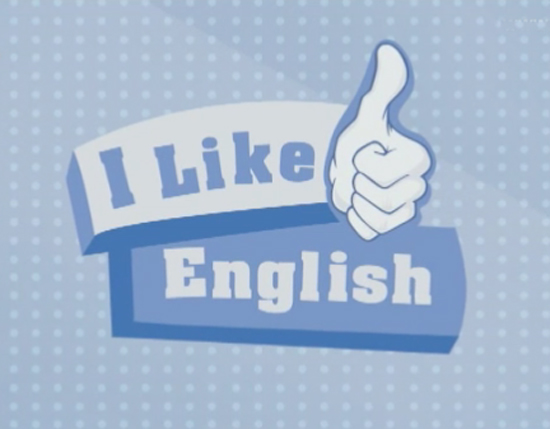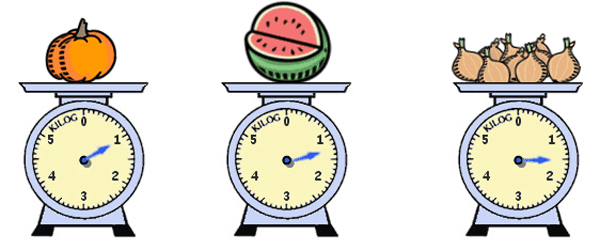คําศัพท์ภาษาอังกฤษ
Comparative & Superlative
คําศัพท์ภาษาอังกฤษ
ตอน Comparative & Superlative
ขั้นกว่า และ ขั้นสูงสุด
ตอน Comparative & Superlative
ขั้นกว่า และ ขั้นสูงสุด
welcome to I like English
รายการที่จะทำให้คุณชอบภาษาอังกฤษมากขึ้น
รายการที่จะทำให้คุณชอบภาษาอังกฤษมากขึ้น
โดย สุภักพร ตรีสุผล (สตาร์) & Aj.Shon Pistoll

Comparative & Superlative ขั้นกว่า และ ขั้นสูงสุด
The comparative form is used to show the difference between two things, two groups or two groups of people when comparing the two things which are equal.
รูปเปรียบเทียบใช้ในการแสดงความแตกต่างระหว่างของสองสิ่ง สองกลุ่ม หรือกลุ่มคนสองกลุ่ม เมื่อเปรียบเทียบของสองกลุ่มในระดับเท่ากันและขั้นกว่าค่ะ
If the two things are equal, we can use the form "as...(Adj)...as", for example;
สำหรับระดับเท่ากันนั้น เราสามารถใช้รูปแบบ "as..(Adj)..as" ในการเปรuยบเทียบดังตัวอย่างค่ะ
She is as old as her friend.
เธอมีอายุเท่ากับเพื่อนของเธอ
I'm almost as goog in math as in science.
ฉันเกือยจะเรียนวิชาเลขได้ดีเท่ากับวิทยาศาสตร์

She is as old as her friend.
เธอมีอายุเท่ากับเพื่อนของเธอ
When comparing with the form "as..(Adj)..as", the adjective does not change.
เมื่อเราเปรียบเที่ยบโดยใช้รูปแบบขั้นต้นคำคุณศัพท์ไม่ต้องเปลี่ยนรูป
For the comparative, some changes are necessary, depending on the number of syllables the adjectve has.
สำหรับการเปรียบเทียบในขั้นกว่าอาจมีการเปลี่ยนแปลงคำคุณศัพท์ขึ้นอยู่พยางค์ของคำคุณศัพท์ค่ะ
1-Syllable adjectives add "-er" to the adjective, forllowed by the word "than", for example; My sister is much taller than me. แปลว่า ถ้าคำพยางค์เดียว เติม er ต่อท้ายคำคุณศัพท์นั้น ดังตัวอย่างข้างต้น คือ tall เป็น taller than...
2-syllable adjectives ending in -y, change the -y to "-ier" follow by the word "than", for example; She's looking happier today than yesterday. แปลว่า ถ้าคำสองพยางค์และลงท้ายด้วย y ให้เปลี่ยน y เป็น i แล้วเติม er หลังคำคุณศัพท์ ดังตัวอย่างข้างต้น happy เป็น happier today than...
Other 2-syllable adjectives use "more" with the unchanged adjective, follow by the word "than", for example; Is there anything more boring than reading about grammar? แปลว่า ถ้าเป็นคำสองพยางค์ทั่วไป ให้เติม more นำหน้าแล้วตามด้วยคำคุณศัพท์โดยไม่ต้องเปลี่ยนรูปของคำคุณศัพท์ แล้วตามด้วย -than ดังตัวอย่างข้างต้น more boring than....
Adjectives with 3 or more syllables use more with the unchanged adjective, for example; Russian grammar is more difficult than English grammar. แปลว่า ถ้าเป็นคำคุรศัพท์ 3 พยางค์ขึ้นไป เติม more นำหน้าไม่เปลี่ยนรูปคำ และตามด้วย than เช่นเดียวกันดังตัวอย่างข้างต้น คือ more difficult than...
The superlative form is used to show the difference between three or more things or people in a group. There are some basic rules to follow. สำหรับรูปขั้นสูงสุดใช้แสดงความแตกต่างระหว่างของสามสิ่งหรือมากกว่าโดยมีกฏดังนี้ค่ะ
1-syllable adjectives add "-est" to the adjective plus "the", for example; My sister is the tallest in our family. แปลว่า ถ้าคำคุณศัพท์พยางค์เดียว ให้ใส่ the หน้าคำ และเติม est ตามหลักคำคุณศัพท์ ดังตัวอย่างข้างต้น the tallest
2-syllable adjectives ending in -y, change the -y to "iest", for example; The richest people are not always the happiest. แปลว่า ถ้าคำคุณศัพท์มีสองพยางค์ และลงท้ายด้วย y ให้เปลี่ยน y เป็น i แล้วเติม est และใส่ the นำหน้าคำคุณศัพท์ ดังตัวอย่างข้างต้น the happiest
Other 2-syllable adjectives, use "the most" with the unchanged adjective, for example;
The most boring thing about ESL class is doing grammar exercises. แปลว่า ถ้าเป็นคำคุณศัพท์มีสองพยางค์ทั่วไป เราใสคำว่า the most นำหน้า โดยที่ไม่ต้องเปลี่ยนคำคุณศัพท์ ดังตัวอย่างข้างต้น the most boring thing
Adjectives with 3 or more syllables: use "the most" with the unchanged adjective, for example; Some people think that Russian is the most difficult language. แปลว่า ถ้าคำคุณศัพท์มีมากกว่า 3 ขึ้นไปใส่คำว่า the most นำหน้าโดยไม่ต้องเปลี่ยนคำคุณศัพท์ดังตัวอย่างข้างต้น The most difficult

much (many)-more-most
มาก มากกว่า มากที่สุด
On occasion, in English we must break the rules. Some adjectives have different forms of comparatives and superlatives. Here are some examples. มีคำคุณศัพท์บางคำที่เปลี่ยนไปเลยในขั้นกว่าและขั้นสูงสุดไปเลยดังนี้
good-better-best
ดี ดีกว่า ดีที่สุด
bad-worse-worst
แย่ แย่กว่า แย่ที่สุด
little-less-least
เล็กน้อย เล็กน้อยกว่า เล็กน้อยที่สุด
much (many)-more-most
มาก มากกว่า มากที่สุด
Today you've learned a lot of vocabulary about "Comparative and Superlative Forms." For example;
Compare เปรียบเทียบ
Comparative ขั้นกว่า
Superlative ขั้นสูงสุด
Difficult ยาก
